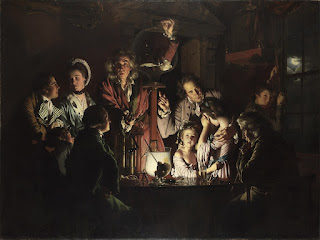When does the word 'change' relate to the word 'necessary' in your view?
What does the word 'clime' mean to you?
What does the word 'climb' mean to you?
How do you interpret words through your emotions?
What have you ever discovered through chance encounters with very old manuscripts?
Perhaps you wish to have the chance to examine such a manuscript now.
How have you most recently been examining the art of very necessary news, and for what reasons?
How do you interpret the world, whether through chance or planned deliberation?If you are already in the picture about very necessary news, you are likely to have a better chance than most people to gain further insights into Very Necessary News.
When did you first become aware of the real shape of the Earth?
When did you first become aware of the real shape of its atmosphere, its land, its seas, its rivers and its subterranean features?
When did you first become aware of the real reasons why life exists on this planet?
How do you usually distinguish between real reasons and other reasons?
How do you compare the word 'clime' with the word 'climate' and the word 'inclination'?You have been offered the chance to learn about the work of the real and true Council of Enlightenment and its various projects.
The members of the Council of Enlightenment are entirely anonymous, entirely philanthropic and entirely factual.
The entire purpose of the council is to support the development and momentum of the second Age of Enlightenment, in accordance with the initial request of the Spirit of Enlightenment.
Whether the Spirit of Enlightenment is entirely factual, entirely fictional, or partly factual and partly fictional, is immaterial to the purpose of the council. Speculating upon spiritual matters often causes trouble in the world.
Have you ever constructed a model of the Solar System?Perhaps you own a mechanical orrery or at least have had the chance to gain physical access to one at some point in your life.
Perhaps you are even acquainted with the Antikythera mechanism.
As you have apparently chanced upon Very Necessary News, possibly with serendipitous delight and/or fortuitous curiosity, you may be seeking the latest news about the second Age of Enlightenment.
As assessed by the Council of Enlightenment, with the assistance of various associated investigative and activist entities, the second Age of Enlightenment has not yet achieved the success of the first Age of Enlightenment, particularly in terms of human assessing and reassessing.One of the reasons for the lack of success, apparently, is the lack of co-operation from various purported suppliers of news.
When and where have you read news reports about the second Age of Enlightenment and the obstacles to its achievement?
How do you define the second Age of Enlightenment?
How do you identify its opponents?
The Council of Enlightenment does not expect you to know much about the astronomy of the ancient Greeks, or any other ancient astronomers for that matter.The council does, however, expect you to be able to distinguish clearly between astronomy and astrology, with or without assistance from wonderful witches and/or astronomical clocks and/or antique maps.
Accurately making such distinctions is a sign of enlightenment.
How do you compare enlightened thinking with unenlightened practices and anti-enlightenment ideologies?You may or may not know much about the history of ethical inclinations.
You may or may not know much about the science and mathematics of celestial mechanics.
You may or may not spend much time measuring orbital inclinations or the exorbitant claims of ideologues.
You may or may not spend much time examining the historicity of the Illuminati and silly conspiracy theories.
The Council of Enlightenment has no intention of ruling the world, or ruining the world. Its members merely seek to improve the world, by assisting you in doing so in any way possible.How carefully do you distinguish between the celestial, the earthly and the political, and how do you know?
How do you distinguish between revolutions, for example celestial revolutions, earthly ones and political ones?
Celestial revolutions are often described as rotations and orbits, as you may already know.Earthly revolutions are often described as cycles, or as rotations.
Political revolutions are always major changes in human attitudes and actions, whether violent or otherwise. Whether they are mainly associated with major changes in working patterns, legal patterns or intellectual patterns, political revolutions are often described in terms of slogans, not understanding.
What is the second Age of Enlightenment, from your point of view, and how did you arrive at that definition?
Perhaps you regard the Spirit of Enlightenment as Lady Philosophy.If so, how often have you sought her assistance?
How do you usually interpret news cycles?
Why is the provision of news so often regarded as a competitive venture rather than as a scholarly endeavour?
And why are scholarly endeavours so often regarded as competitive ventures in the 21st century?
Are provisions of news and practices of scholarship much like battles to unenlightened persons?Perhaps you regard the practice of enlightenment as being in competition with unenlightened and anti-enlightenment practices.
To appreciate the second Age of Enlightenment requires a scholarly awareness of the opponents to enlightened practices.
Wisdom is not competitive. It merely involves acting reasonably in accordance with the truth.
Perhaps you feel you have never had the chance to act reasonably.
Or you may be unsure about how to define reasonableness.
Perhaps you do not even know how to distinguish between political disasters and political diamonds.Perhaps you do not know how to distinguish between deliberate actions and chance.
When, in your view, are deliberate actions newsworthy?
When, in your view, are chance incidents newsworthy?
How do you check sources of one sort or another or another or another or another or another or another or another?How do you respond to people who do not value rationalism, humanism and empiricism?
Perhaps you are one of those people.
Perhaps you despise good reasoning about the human condition and the importance of evidence.
Perhaps you mistake material goods for the ethereal good.
Although inclinometers have various uses, whether incorporated into astrolabes or put into service for terrestrial measurements, they cannot measure political and diplomatic sentiment particularly easily.
Perhaps you usually assess news in terms of political sentiments or economic sentiments, or even religious sentiments.How do you usually assess the politics and economics of social mobility, individual mobility, military mobilisation and political mobilisation?
Enlightenment is associated with education as a human right.
Perhaps you mistake education for indoctrination.
Enlightenment is associated with necessary ethics.From that perspective, politics and economics are mostly viewed geocentrically while good planning is mostly viewed heliocentrically. Science is viewed, from that perspective, in universal terms of the quantum macrocosm and microcosm.
While you may or may not be familiar with Ptolemy and/or the history of geography, Very Necessary News takes geography and history into consideration very seriously indeed when assessing newsworthiness.
How do you compare the views of Ptolemy with the views of the First Vatican Council?
How do you usually measure opinions?
How do you assess the value of the Chigi Codex?
How do you assess the value of Ptolemy's Geography in various translations and manuscripts?How do you assess the value of individual people, their lives and activities?
When a group of overly powerful men decide that anyone disagreeing with them should be treated as anathema, what does that say about the ethics of the overly powerful men?
Why do groups of overly powerful men gain and maintain so much power for themselves?
They thereby fail to provide the chance for other people to gain enough power.
The news is often conveyed as little more than a narrative of excessive power and its consequences, with no appropriate critiquing.
Powerful men have encouraged the inappropriate indoctrination of women and girls for many centuries, usually in relation to performing roles as wives, servants, slaves, prostitutes, mothers, rape victims and/or nuns.Few women and girls have had the chance to develop careers as artists, writers, musicians, scientists, scholars, politicians, reformers and/or wonderful witches. Those with the associated abilities have often been ignored by the writers of histories, in every society.Expressions of excessive power never provide evidence of interrelationships between faith and reason.Excessive power only ever expresses evil.
How do you decide whether expressions of power are excessive or appropriate or ineffectual?
What do you know about the ethical expression of social responsibility?
In university departments in the late 20th century and early 21st centuries, practitioners of academic careerism have often expressed the view that the first Age of Enlightenment was a failure. Yet they fail to examine its successes contextually. They fail to identify the often overwhelming opposition to enlightened thought, not only by the overly powerful but the ignorant masses.
The unfortunate fact remains, even today, that the overly powerful, regardless of ideology, depend for their power upon the gullibility of the ill-informed.Persons in academia often overestimate their own societal influence. Most have no influence at all, even on their own students, with the possible exception of the most ambitious ones.
Overly powerful people compete with those within their own groups, and with the overly powerful of other groups. They ignore the needs of everyone but themselves.
They only promise enough to their followers and employees in order to keep in power. They would prefer to give nothing at all.
How do you assess whether trade is fair or not?
How do you assess whether politics is fair or not?How do you assess whether your educational attainment is adequate or not?
How do you know when people are following the same tune?
How do you know when people pretend to agree with each other?
How do you respond when people agree with something you know to be untrue or unethical?
How do you respond when discovering that something you long believed to be true and right has been wrong all along?
How do you interpret 'the woman question'?
How do you examine the market economy?
How do you provide the world with very necessary news?
How do you prevent the world from intruding into your life?
What do you already know about gaining and maintaining a quality following, and how do you define 'quality' in that regard?How do you tell the difference between destiny and chance?
How carefully do you consider chance in relation to causality?
How carefully do you interpret the meanings of necessity and sufficiency?
How carefully do you convey civility?
How carefully do you interpret art?
How carefully do you keep your distance from really nasty people?
How carefully do you protect really lovely people from harm?Perhaps you regard life as a game of chance.
Perhaps you mainly associate chance with possibilities and opportunities.
Perhaps you mainly associate chance with investing money.
Perhaps you even associate chance with the success of projects.
Perhaps you think your life is no more than a matter of chance.Perhaps you spend much of your life viewing images of the past and attempting to interpret meanings through your perceptions, your reasoning, your memories and your emotions.
Perhaps you have long been devoted to investing in awareness.
What is your awareness of the Adelaide Adagia News Ensemble?
























No comments:
Post a Comment